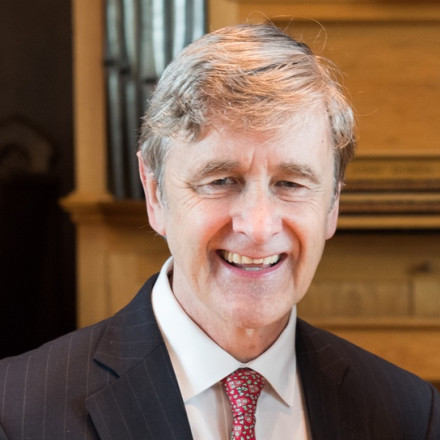The calling of a Divinity School today – enabling religious understanding in a pluralist world
Professor David Hempton, Dean of Harvard Divinity School, was in Dublin recently to address an audience at the Irish School of Ecumenics in Trinity College, Dublin. He had just led this premier school through its bicentenary year; and towards the end of a lecture devoted largely to the demographics and philosophies that led to the Trump presidency, he spoke about his vision for the calling of a divinity school in the pluralist world of the 21st century. This article is a shortened version of his recent interview on this subject with the Harvard Gazette, published by kind permission.
Professor David Hempton, Dean of Harvard Divinity School, was in Dublin recently to address an audience at the Irish School of Ecumenics in Trinity College, Dublin. He had just led this premier school through its bicentenary year; and towards the end of a lecture devoted largely to the demographics and philosophies that led to the Trump presidency, he spoke about his vision for the calling of a divinity school in the pluralist world of the 21st century. This article is a shortened version of his recent interview on this subject with the Harvard Gazette, published by kind permission. Looking back to the HDS of the early 19th century, Prof Hempton remarked: WHILE Harvard Divinity School is the oldest non-denominational and non-sectarian divinity school in the United States, what’s remarkable about its early days is how small it was. In the 1820s and 30s, class size rarely exceeded twenty students and now we graduate over 100 every year. It was a small place, and of course, it was male, white, and it was more of a Liberal Protestant tradition. Now it’s a school of 400 students, and half of them are women, and a substantial proportion of them are from racial and ethnic minorities. A strong number of students are international, and over 30 religious traditions are represented in the school. So the school is bigger, more diverse, more representative of the broader population, and has become multi-religious. Q: What’s the role of a divinity school in today’s world? Why is it important to study religion? HEMPTON: There is a historical argument to be made. It’s impossible to understand past civilizations without understanding religion. Religion is a major part of the history of civilization but it’s also the lived experience, the faith and practice, of the great majority of the world’s populations. Why wouldn’t that be important? Also, we’re entering a complicated world order, which is going to be increasingly pluralistic religiously as part of the globalization process and population migrations. We’re trying to educate people to be religiously literate in the best sense of the word, because we’re going to need people who understand how to deal with that greater pluralism. We’ll need leaders who understand more than one religious tradition, not merely in an algebraic way, in the sense of symbols and equations, but with a deep empathy and understanding of what those traditions are and why they’re lived, dynamic, and life-shaping. By 2050, the two largest religions in the world will be Christianity and Islam, and we have to figure out ways of living together peacefully with mutual respect. Q: Some people still think that there will be a clash of civilizations between Islam and Christianity. What is your take on this? HEMPTON: I do not see it that way. Growing up in Northern Ireland, I came to see how dangerous it could be to construct “essentialized” stereotypes of “the other”, and how some can flatten out the others’ beliefs and practices to t into their preconceived ideas of what the others are. At our school, we want to bring to the attention of our students that it’s very dangerous to see religions with a pre-assigned set of fixed categories, and that’s also true in the United States, where there are unacceptable levels of Islamophobia. The best antidote to stereotypes based on ignorance is education and building relationships, and bringing people together. All religious traditions are sources for the noble things we see in life: meaning, love, compassion, forgiveness, generosity, and hospitality. At the school, as part of our Religions and the Practice of Peace Initiative, we want to explore different religious traditions and what their contributions might be to peace-building.* Full article available in printed copies.

David Hempton
Is the Dean of Harvard Divinity School